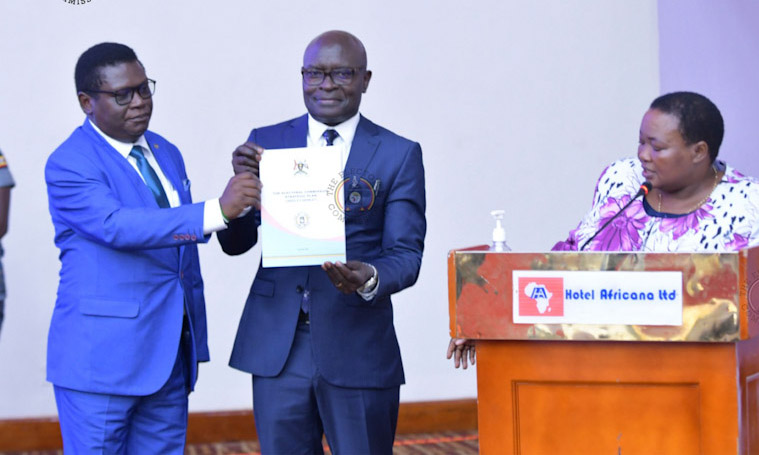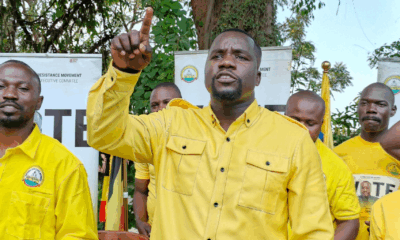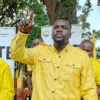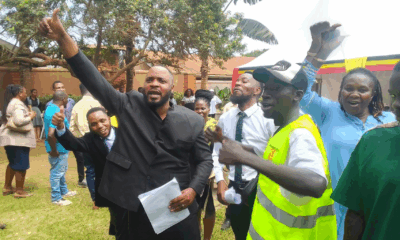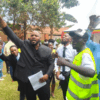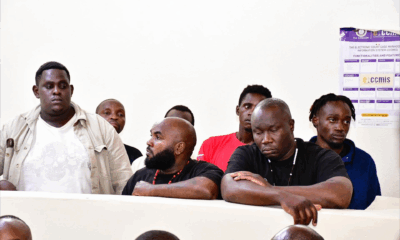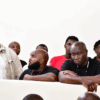News
UGX 1.3 trillion for polls; The high cost of democracy
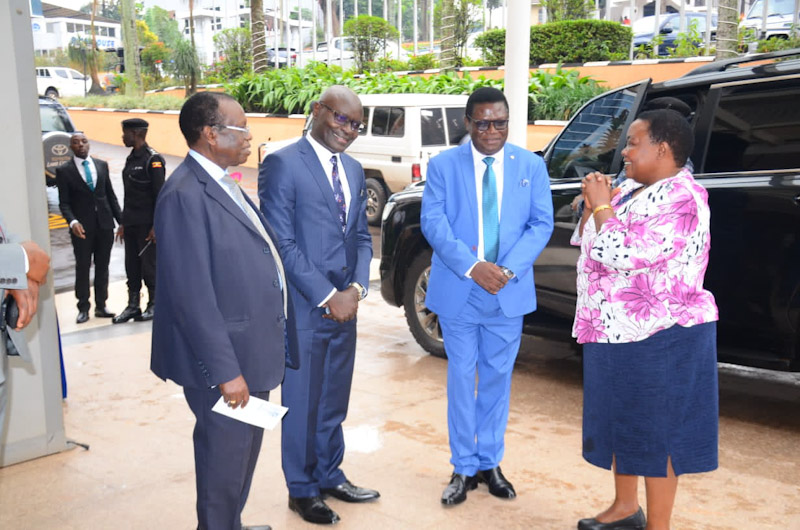
Prime Minister Robinah Nabbanja (right) Minister Norbert Mao, EC Chairman Justice Byabakama 3rd right at the unveiling of the 2026 Uganda electoral roadmap at Hotel Africana in Kampala August 2,2023
The chairman of the Electoral Commission Justice Simon Byabakama Mugenyi recently presented a Ugx1.3 trillion budget which he wants taxpayers to shoulder as the cost of organizing the next round of general elections that will start in 2025.
Some people say the cost is excessive while others argue that it is a necessary evil.
Speaking at the launch of the Electoral Commission Strategic plan and the 2025-2026 electoral roadmap, Justice Byabakama called for the timely release of Ugx1.3 trillion shillings to ensure easy planning for the 2026 general elections.
Politicians especially from the opposition have come out to criticize this budget arguing that it is unnecessarily expensive.
Kennedy Mutenyo, the DP Electoral c
Commission Chairperson says that it is not right for Uganda to spend 1.3 trillion shillings on elections.
Mutenyo says: “For sure, there are better ways to conduct not only free and fair elections at a smaller and realistic budget.
He adds that as a way to lower the cost of elections, the Electoral body should consolidate the elections for all elective positions on one ballot paper so that voters vote on the same day.
“In the private sector we are trained to do things with small budgets to maximize profits. If this was Byabakama’s company, would he spend 1.3 trillion shillings on an election, of course no. You see, by holding elections on the same day this would save money,”
Mutenyo adds that spreading the polls to more days causes voter fatigue which results into low voter turn up which undermines democracy.
Richard Lumu, the Member of Parliament foe Mityana South adds that it is unfortunate that the taxpayers bear this burden of 1.3 trillion shillings, money that would be used for service delivery.
Justice Byabakama said the budget that was approved by the Ministry of Finance was based on a number of factors not limited to changes in market prices.
“Every general election the cost of organizing the polls inevitably goes up….the factors for a significant increase and cost drivers include the projected increase in voter population,” Justice Byabakama said.
The EC boss adds that whereas the idea of conducting general elections on one day as a way of cutting the budget is a great one, it is not practical.
The Electoral Commission boss says that having more ballot boxes at a particular polling station would result in more congestion and disorganization.
He says in such an arrangement it is not feasible to end the polling at 4PM and ballot counting there after declaring the results in the constitutionally stipulated time.
The spokesperson of the Electoral Commission Paul Bukenya justified the budget saying it was thoroughly researched and that it was made by experts and its based on national guidelines for strategic planning set by the National Planning Authority.
Bukenya added that the budget was approved by the Ministry of Finance.
But NRM Electoral Commission Chairperson Dr. Tanga Odoi, concured with the EC boss adding that it might even be less.
“One of the hallmarks of a peaceful country is a peaceful election. If you dont want a country to slide into a failed state status, you must fund elections as a vehicle for sustainable peace.”
If you see that the multiplicity of constituencies and other electoral activities, 1 trillion shilling is very small for that election and I support the issue that they need more money because our stability depends on stable election,” Dr. Odoi.
Henry Muguzi, the Executive Director of Alliance for Campaign Finance Monitoring (ACFM) says that democracy is very expensive and to organize those activities that sustain democracy, countries spend a lot of money.
“If you look around Africa, every time each of those African Countries go through elections their GDP goes down, it tells you how much they spend on elections,” Mujuzi notes.
He further says that because of the inadequacy of funds, the Electoral Commission has not yet gone digital.
He adds that the Commission needs to recruit more personnel to handle the task.
“Democracy is expensive. Because the other alternatives are much more expensive, yes one trillion shillings is much but no price can be attached to the peace that comes as result of elections,” Muguzi cautioned
Muguzi added a rejoinder by suggesting that the Electoral Commission could have done better to cut down the budget. He suggested consolidatibg the polls on one day as the case is in Kenya.
“We can say that on one day we have a presidential, direct Member of Parliament, the District Woman Member of Parliament, the Mayor and the District LC 5 elected to save money,” Muguzi explains.
He suggested another area to cut the budget is to procure ballot papers locally. Muguzi says that Nigeria has produced ballot papers locally and elections went on well. He stresses that currently Uganda spends too much to procure ballot papers abroad.
Comments



